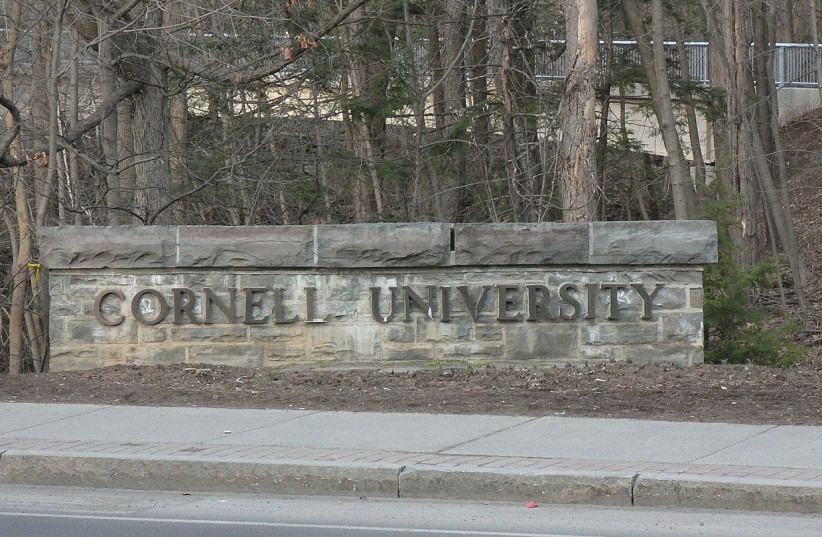Anti-Israel activists vandalized a Cornell University building on Sunday night as the fall semester began, according to Cornell University Vice President for University Relations Joel Malina.
Malina said in a Tuesday statement that Day Hall’s front entrance had been spray painted and glass shattered. The Cornell Daily Sun reported that “Israel bombs, Cornell pays” and “Blood is on your hands” were graffitied on the administrative building.
“Acts of violence, extended occupation of buildings, or property damage (including graffiti) will not be tolerated and will prompt an immediate response from public safety,” said Malina. “Cornell Police are conducting a thorough investigation, and those responsible will be subject to suspension and criminal charges.”
Anonymous activists told The Sun that they believed targeting the school’s property was the only way to be heard and admonished the administration for trying to create a “facade of normalcy” as the academic year began. The activists lambasted former Cornell president Martha Pollack for failing to cut ties with Israel and call for a ceasefire before retiring in June amid intense protests.
The Coalition for Mutual Liberation warned interim president Michael Kotlikoff on Instagram on Sunday, saying that “if you don’t divest, you’re next,” referencing a slew of American university presidents who had resigned in the wake of anti-Israel encampments and protests. A protest was held on the first day of classes at Ho Plaza on Monday, calling for divestment.

Kotlikoff and Interim Provost John Siliciano, in a Monday statement, warned that while freedom of expression and civil discourse would be welcomed, this right was not unlimited and could not infringe upon others.
Encampments would need to be registered and could only be held in set locations. The administrators also laid out a three-step policy of discipline, in which a second violation for unapproved or non-peaceful encampments would be met with a non-academic temporary suspension before a temporary academic suspension upon a third violation.
Potential sanctions
“Faculty and staff who engage in these activities will be referred to their college, school, or administrative unit leadership for warning, review, and potential sanctions,” said Kotlikoff and Siliciano. “As long-time Cornellians who have witnessed numerous periods of campus unrest, we understand the importance of faculty, staff, and students expressing themselves on topics of great significance. We urge all members of the community to express their views in a manner that respects the rights of others.”
Ahead of continued demands on the adoption of anti-Israel policies, the administrators said that they would not be opining on national or global events.
